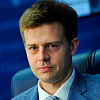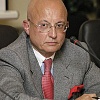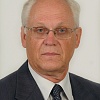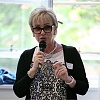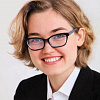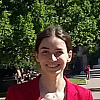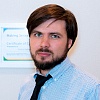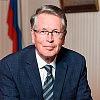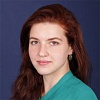Experts
Lecturer, Department of Asian and African Studies, MGIMO University, Research Fellow, Center for Japanese Studies, RAS Institute of Oriental Studies, RIAC Expert
Vice President of the Russian International Affairs Council, Executive Vice President of Sistema JSFC
Dean of the Department of World Economics and World Politics of the National Research University-Higher School of Economics
Ambassador Extraordinary and Plenipotentiary of the Russian Federation, Senior Research Fellow at the Institute of International Research, MGIMO University, RIAC Member
Ph.D. in Political Science, Leading Research Fellow, Head of the Center for Italian Studies, Institute of Europe of the Russian Academy of Sciences, Associate Professor at the National Research University Higher School of Economics, RIAC Expert
Director of the Baltic Studies Institute of I. Kant Baltic Federal University
Ph.D., Institute of International Relations and World History, N. I. Lobachevsky State University of Nizhny Novgorod
Editor-in-Chief of the Arsenal of the Fatherland magazine
Doctor of Economics, Head of Marketing and Advertising Chair at Russian State University for Humanities, Honorary Member of the Guild of Marketers
Corresponding member, RAS, Dr. of Economics, Professor,
Dean of the Faculty for International Energy Business, Gubkin Russian State University of Oil and Gas
Commentator for International Affairs under the Editor-in-Chief of Nezavisimaya Gazeta
Doctor of Economy, Professor, Professor, Member of the Global Migration Policy Associates
Leading analyst, Center for Energy and Digital Economy Stretegic Research, MGIMO University. Founder, President of Honour, MGIMO Arctic Student Research Club
PhD in History, Professor at Chair of Theory and History of International Relations, Boris Yeltsin Urals Federal University
Research Fellow at the Center for International Security, Institute of World Economy and International Relations of the Russian Academy of Sciences, co-founder of the Vatfor project, RIAC Expert
Cand.Sc.(Ped.), Junior Research Fellow, Moscow Lomonosov University
Ambassador Extraordinary and Plenipotentiary of the Russian Federation, RIAC Member
Doctor of History, RAS Institute for Far Eastern Studies, member of the Governing Board of the UNESCO International Institute for Educational Planning
Doctor of Economics, RAS Institute of Far Eastern Studies, RIAC Expert
RIAC Expert
Lecturer at the Saint Petersburg State University, RIAC Expert
PhD, Deputy Head, Institute of History and International Relations Saratov State University
Consultant at PIR-Center for Policy Studies
Ph.D. in History, Research affiliate at the Ukrainian Research Institute (Harvard University) and the Center for International and European Studies, Kadir Has University, Istanbul, Deputy Director, Analytical Center Observo, French-Russian Chamber of Commerce
PhD in History, RAS Institute of Oriental Studies
Professor, Doctor of Law; president of the Chair of International Law at the People’s Friendship University of Russia; member of the UN Committee on Economic, Social and Cultural Rights
Coordinator at the Reanimation Package of Reforms initiative, Ukraine
PhD in Political Science, RIAC Expert
PhD in Economics, Head of the European Security Department RAS Institute of Europe
Poll conducted
-
In your opinion, what are the US long-term goals for Russia?
U.S. wants to establish partnership relations with Russia on condition that it meets the U.S. requirements 33 (31%) U.S. wants to deter Russia’s military and political activity 30 (28%) U.S. wants to dissolve Russia 24 (22%) U.S. wants to establish alliance relations with Russia under the US conditions to rival China 21 (19%)


